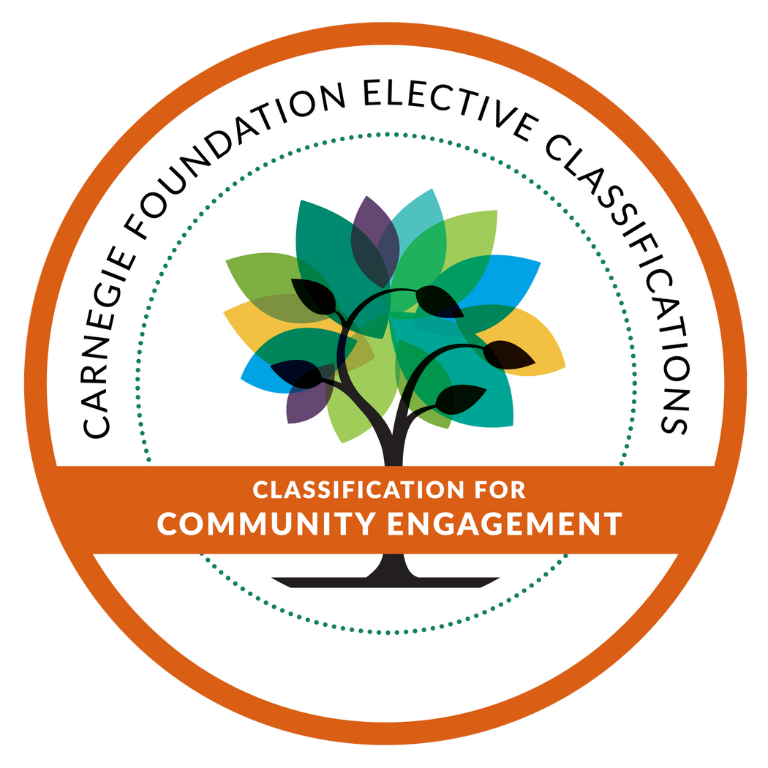Our mission is to enhance students' civic development through community-engaged learning that meets real community needs. We support professors and community partners to create connections to develop meaningful experiential learning opportunities for students, through community engaged courses.
The concept is a simple one: Students provide service in their community that is directly connected to their academic coursework, and the community provides an educational experience for the student while receiving support for their work.


